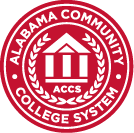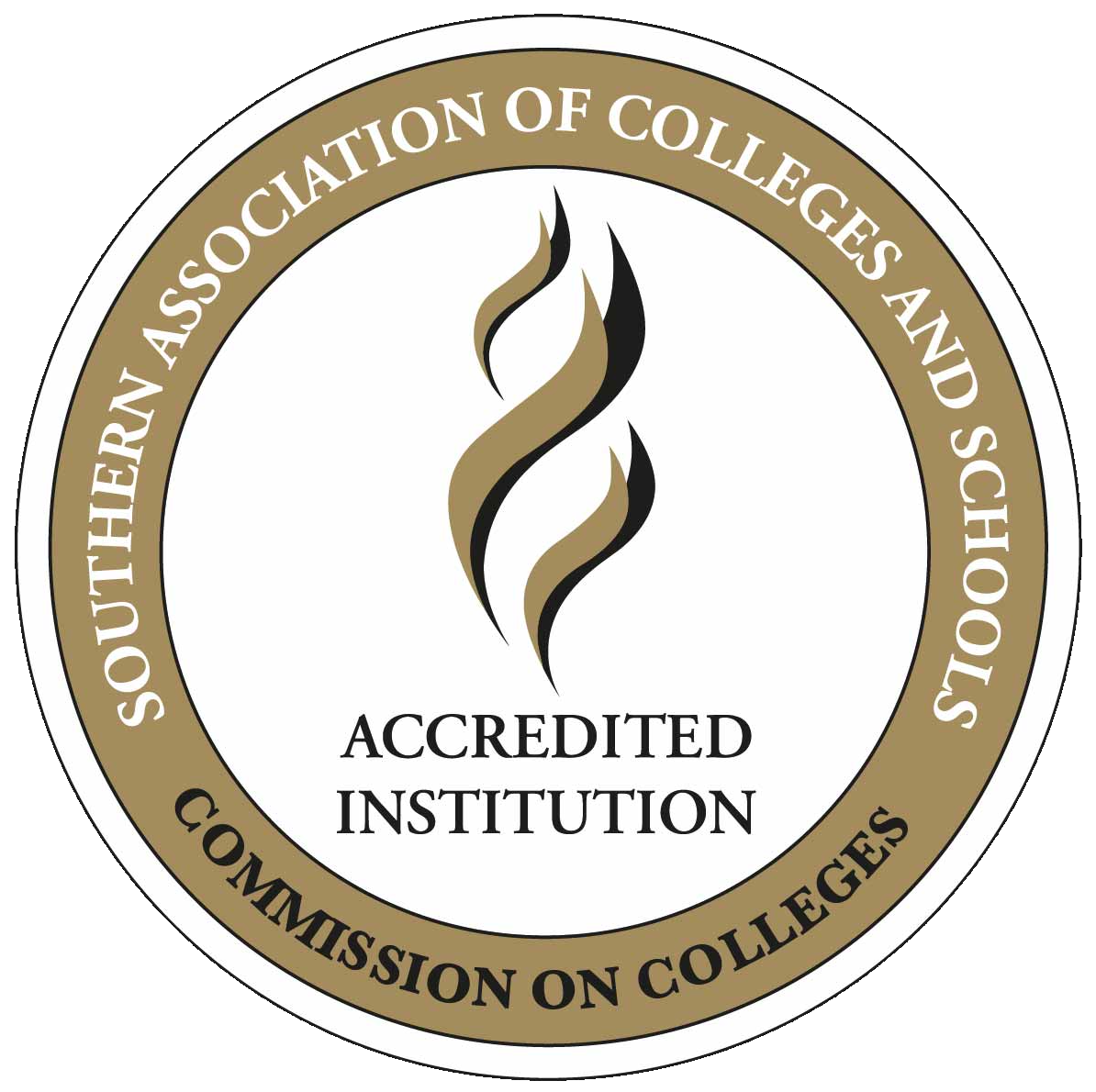How do I apply to the Rad Tech program?
How will I know if I am accepted into the radiology program?
Once the application deadline has passed, program advisors will review and rank all program applications. Once the ranking is complete, the highest 35-40 point ranking individuals will be e-mailed, using a Jefferson State e-mail address, an admission letter and packet with specific instructions. Some information includes how to secure the applicant’s seat in the program by completing a background check and attending a mandatory orientation session as scheduled.
What happens if I am not accepted into the program?
All program applicants not accepted will receive an email to their Jefferson State email address approximately 2 weeks after the RAD TECH application deadline has passed.
If you were not competitive enough to be accepted into the program, you may schedule an appointment with an Academic Advisor to review your application.
How can I make myself competitive for RAD program admission?
The Ranking sheet is comprised of 3 sections, ACT score, Academic Course Grading and General Education Courses. Using the Ranking sheet as a guide, scoring the maximum possible points in each section will make a candidate more competitive.
For example, in the ACT score section, there is a total possible points of 36. The minimum admission score required on the ACT is 18. If a candidate has only 18 points on the ACT, they are eligible for admission but if a candidate wants to be competitive, it may require retaking the ACT for a higher score.
In the Academic Course Grading section, points are given for grades on specific courses, A=30 points, B = 20 points, and C = 10 points. Candidates are eligible for admission with a grade of C or better in MTH 100 or higher, ENG 101 or BIO 103, 201 or 202. However, if a candidate wants to be competitive, then retaking either Math 100 or higher, ENG 101 or BIO 103, 201 or 202 for a higher grade would make the candidate more competitive.
In the General Education Courses section there are 7 possible points. Points are given to a candidate that has completed the following courses. ENG 101, MTH 100 or higher, PSY 200, BIO 201, BIO 202, Humanity elective and one of the following ENG 102, SPH 106 or SPH 107. To be more competitive in this section, candidates need to complete as many of the required general education courses as possible prior to the admission deadline.
Do all of the non-Rad Tech courses need to be completed before applying to the program?
The general education courses required for the RAD Tech program are ENG 101, SPH 106 or SPH107 or ENG 102, MTH 100, PSY 200, BIO 201, BIO 202 and a Humanities Elective. To be eligible for admission you must be eligible for MTH 100 and ENG 101 in the Fall admission period however; a student is much more competitive for admission ranking the more of the general education courses that they have completed.
How many students are accepted into the program each year?
Each year the RAD program accepts 35-40 students based upon clinical availability.
How many points do I need to get into the program?
There is not a minimum number of points that is required. In each admission period, all applications are reviewed and ranked from highest to lowest points. The highest 35-40 point rankings meeting the requirements are accepted.
Can I continue to work full-time and be in the Rad Tech program?
Students are not restricted from working a full time job however; to be successful students need to remember that the RAD program requires students to attend classes Monday through Friday in varying semesters or clinicals from 7AM — 3PM.
How much does the program cost? What expenses can I expect outside of tuition and fees?
The Rad Tech program has a breakdown of cost on it’s website.
How long is the Rad Tech program once accepted?
The RAD program begins each Fall semester and last for 5 consecutive semesters. This is approximately 21 months.
What sites are used for clinicals?
The clinical sites may be found on the Rad Tech program webpage.
Can I be enrolled part-time while in the program?
The RAD program is a full time academic program with a minimum credit hour per semester ranging from 10-16 hours.
Is the Jeff State Rad Tech program accredited?
Jefferson State Community College’s Radiologic Technology Program is accredited by the Joint Commission on Education in Radiologic Technology. https://www.jrcert.org/
How many students pass the certification exam?
The RAD program at JSCC has an excellent pass rate for the ARRT certification exam. All certification pass rates, program completion rates and job placement rates are located on the program’s website.
Are background checks done only on those applicants who receive a letter stating that they are admitted?
Yes. The top ranked individuals who are admitted to the program will be subject to a background check in order to secure an admission seat. Information will be sent to the Jefferson state e-mail to top ranked applicants with their acceptance letter and information.
What is a Radiologic Technologist?
According to the American Society of Radiologic Technologist, Radiologic technologists are those who perform imaging examinations and are responsible for accurately positioning patients and ensuring that a quality diagnostic image is produced. They work closely with radiologists, the physicians who interpret medical images to either diagnose or rule out disease or injury. For the images to be interpreted correctly by the radiologist, the imaging examination must be performed properly by a radiologic technologist.
Radiologic technologists often specialize in particular diagnostic imaging areas. Some of these areas are: Bone Densitometry, Cardiovascular Interventional Technologist, Computer Tomography Technologist, Magnetic Resonance Imaging Technologist, Mammographers, Nuclear Medicine Technologist, Quality Management Technologist, Radiographers, and Sonographers. Each imaging modality requires a specialized skill set and educational and/or hands on training. The RAD program at Jeff State educates students in becoming certified Radiologic Technologist.
Do you offer credentialing in Sonography, Ultrasound or MRI?
No we do not offer credentialing in Sonography, Ultrasound or MRI.
Do you offer credentialing in CT?
No we do not offer credentialing in CT however, we do offer cross-sectional anatomy, CT imaging equipment and physics and a clinical component in CT as a part of the radiologic technology curriculum?
If I am accepted into the RAD Tech program and am unable to attend the Mandatory Admission Orientation Session on the date that it is scheduled by the Program, does this cancel my acceptance into the program?
Attending the Radiography Admission Orientation Session is MANDATORY. By not attending, the applicant forfeits their admission seat. If there are extenuating circumstances in which an applicant cannot attend the Mandatory Admission Orientation Session, they should contact the Program Coordinator in the Judy Merritt Health Science Building suite 323 or by phone at 205 983-5218 or by email at [email protected].
If I’ve already taken the placement test do need to take the ACT?
Yes, only the ACT will be considered for RAD program admission.
How long are ACT scores valid?
The ACT must be completed with the appropriate score within 5 years of the application deadline and be on file with the college by the application deadline.
Do you accept ACT superscores?
Superscores for the ACT are not used for program admission at this time.
What is the ACT residual?
The ACT residual is the ACT test that is given at most Alabama Community College System schools and that is valid only at Alabama Community College Schools.
Are ACT residual scores transferable?
ACT residual Scores are transferable to any Alabama Community College school but will not be accepted by any 4-year University systems.
How often may I take the ACT residual exam?
ACT residual at JSCC can be taken every 60 days. There is no wait period between the national ACT and the residual.
How much does it cost to take the ACT Residual at Jefferson State?
Cost for the ACT residual exam is estimated. Please check with the testing center for the most up to date cost. $78.50
How do I schedule an appointment to take the ACT Residual at Jefferson State?
ACT residual exams are by appointment only. You may schedule an appoint by using the link above. You will need to have a Jeffersonstate e-mail address, ACCS student ID number, and phone number to schedule the exam.
How long does it take to get the ACT residual scores?
Scores can be received anywhere from 2-3 weeks after testing. Scores are available on the Student Hub from the Jefferson State Webpage
Can I take general education courses in conjunction with RAD tech courses.
Yes, you may take general education courses in conjunction with the RAD tech courses. However, if all of the required general education courses are completed prior to program application, the candidate is more competitive. It is also noted that the RAD tech course sequence is very arduous and it is recommended that as many of the general education courses be completed prior to program admission as possible for program success.



